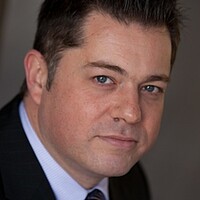Japan's Fukushima debate: How will the meltdown affect the health of residents?
Loading...
| Tokyo
More than two years after the triple meltdown at Japan’s Fukushima Daiichi nuclear power plant all but brought the country to a halt following a massive earthquake and tsunami, the disaster's long-term effects on health are still unknown.
Sanae Takaichi, the policy chief of the Liberal Democratic Party, let loose a media firestorm during a speech calling for the restart of nuclear reactors after saying that no one had died as a direct result of the Fukushima accident.
Highlighting the sensitive nature of the issue, that claim was challenged by politicians, including those from the affected area. They noted local government records showing that at least 1,000 people have died from other causes related to the accident, including suicides and health problems triggered by the evacuation of tens of thousands of residents.
Ms. Takaichi later apologized, and said she had meant that no one had died from radiation spewed from the plant in the days after it was crippled by the March 2011 earthquake and tsunami. But her remarks came as residents, experts, and campaigners continue to assess the impact the nuclear disaster has had and will have on health.
In a recent draft report, the UN Scientific Committee on the Effects on Atomic Radiation (UNSCEAR) said it expected to see no noticeable rise in cancer rates, adding that the swift evacuation of people living in a 20-kilometer (12-mile) radius of the plant had sharply reduced radiation exposure.
The dose levels were "so low that we don't expect to see any increase in cancer in the future in the population," Wolfgang Weiss, a senior member of UNSCEAR, told reporters.
The committee's prognosis was slightly more upbeat than that offered in February by the World Health Organization, which said residents in the worst affected areas faced a slightly higher risk of developing certain cancers.
The WHO added that girls exposed as infants in the most contaminated areas faced a 70 percent higher risk of developing thyroid cancer over their lifetime. This could mean, it said, that about 1.25 out of every 100 girls could develop thyroid cancer, as opposed to the natural rate of about 0.75 percent.
"Due to the low baseline rates of thyroid cancer, even a large relative increase represents a small absolute increase in risks," the WHO said.
Dr. Weiss suggested the UNSCEAR recent report was more accurate because it took into account a full year's worth of data, rather than the WHO study's three months' worth. "[The WHO] didn't have the full picture. We didn't have the full picture either but we have more than one year in addition," he said. "The results are very straightforward ... the evacuation of many, many thousands of people resulted in a reduction of the dose that they would have received if they had stayed in the evacuation zone by a factor of 10."
Parallels with Chernobyl
Weiss said parallels between Fukushima and Chernobyl, where, according to UNSCEAR, more than 6,000 children and adolescents developed thyroid cancer, many after drinking milk contaminated with radioactive iodine, were misguided. "The doses through the thyroid in Japan are much, much lower," he said.
While international studies bear out official Japanese reassurances about the health impact of Fukushima, some scientists accuse the UN of using faulty methodology.
Alexey Yablokov, author of “Chernobyl: Consequences of the Catastrophe for People and the Environment,” says UNSCEAR's claim that there would be no observable increase in cancer rates was "absolutely unacceptable."
The UN bodies' calculations, he says, had been made using flawed estimates of average radiation doses among Fukushima residents. "The average dose estimates don't reflect the real dose of radiation [received by Fukushima residents]," he said during a recent visit to Tokyo.
"How did they estimate the average? It's impossible, because on the first day of the accident the level of radiation was thousands of times higher,” says Dr. Yablokov. “How do you calculate how many minutes people spent inside and outside their houses at that time, or how much air they breathed? It's absolutely ridiculous."
Earlier this month, a study of more than 170,000 Fukushima Prefecture residents aged 18 or under revealed 12 confirmed cases of thyroid cancer, up from three in February. Medical officials in the prefecture said, however, there was no evidence the new cases were linked to the Fukushima meltdown.
'No evidence'
Cham E. Dallas, clinical professor of emergency medicine at Georgia Regents University, agrees. "There is no evidence whatsoever that would support that these cases of thyroid cancer, appearing within only a year of two of the accident, are related to radiation exposure from the Fukushima accident," he says.
"The radioiodine exposure levels at Fukushima were only a tiny, tiny fraction of those at Chernobyl, which were very significant. Therefore, there just wasn't enough exposure at Fukushima to get thyroid cancers, and no other cancers can be expected, based on the Chernobyl experience."
Other leading radiation experts have similarly dismissed any link between thyroid cancer cases and Fukushima.
"[They are] very unlikely to be related to radiation from Fukushima. Most likely it is a case of ascertainment bias ... look for something and you will find it," says Robert Peter Gale, executive director of clinical research at Celgene Corp.







